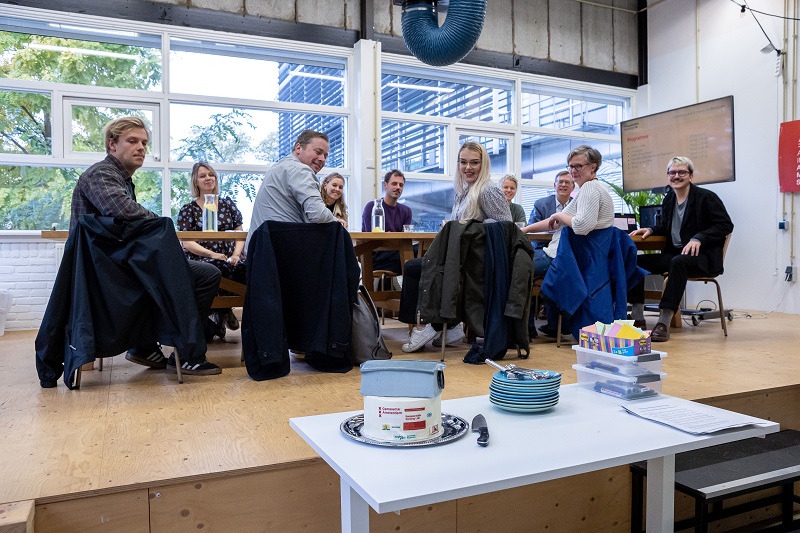
Photo: Sanne Couprie/Responsible Sensing Lab
Cities to create national standard for explaining sensors
25 October 2022
by Sarah Wray
Several Dutch cities are collaborating on a standardised way to inform residents about the use of sensors and other smart city tools.
Participants in the year-long project are the municipalities of Amsterdam, Rotterdam, Utrecht and The Hague, the Province of Noord-Brabant, and the Association of Dutch Municipalities (VNG). The AMS Institute and the Responsible Sensing Lab are co-ordinating the effort.
As the use of sensors in cities grows – to monitor crowds and traffic and manage waste, for example – the partners say residents need to be clearly informed about these systems and have the opportunity to give feedback. This is particularly important as the technologies are often invisible and complex to understand.
“Awareness and accountability are essential for a well-functioning democracy,” a statement from the Responsible Sensing Lab said. “Only if citizens are aware of smart applications and these systems are clearly explained is it possible for them to ask questions and denounce any undesirable situations.”
The cities believe a common approach is also important.
Thijs Turèl, co-founder of the Responsible Sensing Lab, commented: “Traffic signs in the Netherlands are recognisable and understandable for everyone. If every city designed their own, it would be a mess. With this project we want to work towards an equally clear, national communication standard for sensors.”
Different approaches
The project will include empirical research about which approaches work best for residents.
Sam Smits, project manager at the Responsible Sensing Lab, told Cities Today: “We purposefully decided to start this project with an open mind, open to all forms of communication. Visual signage is one of them and does seem viable, but even within this direction there are many different forms.
“The project could potentially entail a strategically chosen combination of different forms. Together with a, yet to be selected, design firm and the experts and researchers involved, we will further narrow down the direction with the most potential during the analysis phase.”
The open source Digital Trust for Places and Routines (DTPR) communication standard, initiated by Sidewalk Labs and now stewarded by Helpful Places, is already available. The visual icons let people know what data a technology is collecting, who’s collecting it, and how it is being used. The signage is currently being piloted by the Angers-Loire metropolitan region in France, the Town of Innisfil in Canada, and the City of Boston and the District of Columbia in the US.
Smits said: “We have previously analysed the DTPR initiative within Responsible Sensing Lab and with local government partners. Although there are interesting lessons to be learned and certainly potential in this great example of iconography, the initiative did not fit Dutch cities directly.
“We will consider and learn from existing initiatives – local and international – throughout our process and build on this knowledge to create a custom solution that fits the Dutch local governmental context.”












